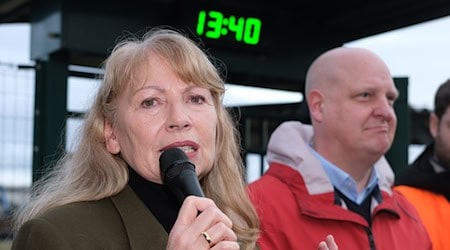Growing insecurity in times of upheaval, irregular migration and the war in Ukraine: these are the three issues to which Chancellor Olaf Scholz (SPD) attributes the massive rise of the AfD, particularly in eastern Germany, and on which he sees a need for action, at least in part. The AfD's performance in the state elections in Thuringia and Saxony with more than 30 percent "depresses me greatly", said Scholz at a citizens' dialog in Berlin.
"The fact that populism is now gaining so much support is not good. And now we all have to see what we can do."
The massive economic and social upheavals are unsettling many citizens, said the Chancellor. As an example, he cited the restructuring of the economy in order to reduce emissions of climate-damaging gases. When it comes to modernization, "we have to prove by deed that we can do it". The German government must now also show that it has the issue of irregular migration under control. "That's what I'm trying to do."
When it comes to the war in Ukraine, however, Scholz is not prepared to change course. He wants to continue to support Ukraine with arms deliveries, but wants to continue to act prudently. "This is an issue that needs to be discussed. But I also think it's a question of remaining truthful. And here I can say: I am sticking to my prudent course, but a course of support."
Disastrous SPD results
On Sunday, the SPD achieved its worst election results since 1990 in Saxony and Thuringia with 7.3 and 6.1 percent respectively. The result in Thuringia is even the worst ever in a state election.
The Chancellor's appearance at the Citizens' Dialogue was the first time he answered questions about the election. On Monday, Scholz had initially only commented in writing and described the SPD results as "bitter". At the same time, he expressed relief that the "gloomy forecasts", according to which the SPD could have fallen below the five percent hurdle, did not materialize.
At the Citizens' Dialogue, all Scholz said about the SPD results was that he would have liked the campaigners in Saxony and Thuringia to have achieved better results. "They could have done better because they did really well. But you have to take note of that."
Copyright 2024, dpa (www.dpa.de). All rights reserved










